第39章 CHAPTER 4 Narcissus Off Duty(2)
Then Amory branched off and found that Burne was deep in other things as well. Economics had interested him and he was turning socialist. Pacifism played in the back of his mind, and he read the Masses and Lyoff Tolstoi faithfully.
"How about religion?" Amory asked him.
"Don't know. I'm in a muddle about a lot of thingsI've just discovered that I've a mind, and I'm starting to read."
"Read what?"
"Everything. I have to pick and choose, of course, but mostly things to make me think. I'm reading the four gospels now, and the 'Varieties of Religious Experience.'"
"What chiefly started you?"
"Wells, I guess, and Tolstoi, and a man named Edward Carpenter.
I've been reading for over a year nowon a few lines, on what I consider the essential lines."
"Poetry?"
"Well, frankly, not what you call poetry, or for your reasonsyou two write, of course, and look at things differently. Whitman is the man that attracts me."
"Whitman?"
"Yes; he's a definite ethical force."
"Well, I'm ashamed to say that I'm a blank on the subject of Whitman. How about you, Tom?"
Tom nodded sheepishly.
"Well," continued Burne, "you may strike a few poems that are tiresome, but I mean the mass of his work. He's tremendouslike Tolstoi. They both look things in the face, and, somehow, different as they are, stand for somewhat the same things."
"You have me stumped, Burne," Amory admitted. "I've read 'Anna Karinina' and the 'Kreutzer Sonata' of course, but Tolstoi is mostly in the original Russian as far as I'm concerned."
"He's the greatest man in hundreds of years," cried Burne enthusiastically. "Did you ever see a picture of that shaggy old head of his?"
They talked until three, from biology to organized religion, and when Amory crept shivering into bed it was with his mind aglow with ideas and a sense of shock that some one else had discovered the path he might have followed. Burne Holiday was so evidently developingand Amory had considered that he was doing the same. He had fallen into a deep cynicism over what had crossed his path, plotted the imperfectability of man and read Shaw and Chesterton enough to keep his mind from the edges of decadencenow suddenly all his mental processes of the last year and a half seemed stale and futilea petty consummation of himself ... and like a sombre background lay that incident of the spring before, that filled half his nights with a dreary terror and made him unable to pray.
He was not even a Catholic, yet that was the only ghost of a code that he had, the gaudy, ritualistic, paradoxical Catholicism whose prophet was Chesterton, whose claqueurs were such reformed rakes of literature as Huysmans and Bourget, whose American sponsor was Ralph Adams Cram, with his adulation of thirteenth-century cathedralsa Catholicism which Amory found convenient and ready-made, without priest or sacraments or sacrifice.
He could not sleep, so he turned on his reading-lamp and, taking down the "Kreutzer Sonata," searched it carefully for the germs of Burne's enthusiasm. Being Burne was suddenly so much realler than being clever. Yet he sighed ... here were other possible clay feet.
He thought back through two years, of Burne as a hurried, nervous freshman, quite submerged in his brother's personality. Then he remembered an incident of sophomore year, in which Burne had been suspected of the leading role.
Dean Hollister had been heard by a large group arguing with a taxi-driver, who had driven him from the junction. In the course of the altercation the dean remarked that he "might as well buy the taxicab." He paid and walked off, but next morning he entered his private office to find the taxicab itself in the space usually occupied by his desk, bearing a sign which read "Property of Dean Hollister. Bought and Paid for."... It took two expert mechanics half a day to dissemble it into its minutest parts and remove it, which only goes to prove the rare energy of sophomore humor under efficient leadership.
Then again, that very fall, Burne had caused a sensation. A certain Phyllis Styles, an intercollegiate prom-trotter, had failed to get her yearly invitation to the Harvard-Princeton game.
Jesse Ferrenby had brought her to a smaller game a few weeks before, and had pressed Burne into serviceto the ruination of the latter's misogyny.
"Are you coming to the Harvard game?" Burne had asked indiscreetly, merely to make conversation.
"If you ask me," cried Phyllis quickly.
"Of course I do," said Burne feebly. He was unversed in the arts of Phyllis, and was sure that this was merely a vapid form of kidding. Before an hour had passed he knew that he was indeed involved. Phyllis had pinned him down and served him up, informed him the train she was arriving by, and depressed him thoroughly.
Aside from loathing Phyllis, he had particularly wanted to stag that game and entertain some Harvard friends.
"She'll see," he informed a delegation who arrived in his room to josh him. "This will be the last game she ever persuades any young innocent to take her to!"
"But, Burnewhy did you invite her if you didn't want her?"
"Burne, you know you're secretly mad about her-that's the real trouble."
"What can you do, Burne? What can you do against Phyllis?"
But Burne only shook his head and muttered threats which consisted largely of the phrase: "She'll see, she'll see!"
The blithesome Phyllis bore her twenty-five summers gayly from the train, but on the platform a ghastly sight met her eyes.